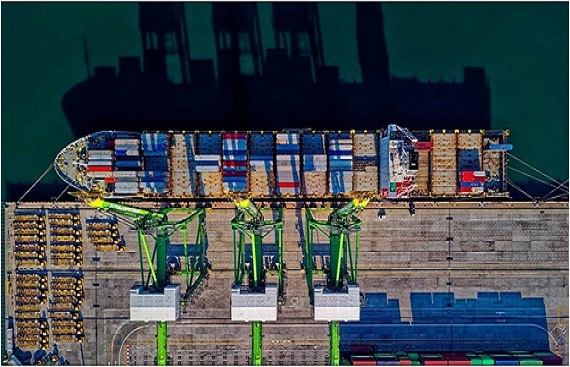The US-China Trade War and its Impact on Indian Tech

In August 2018, the Indian economy had a growth rate of 7.5%, making it the fastest growing of all the world's major economies. Much of this was down to India's technology industry, which has quickly become a magnet for international investors. However, with increasing tensions between the US and China, as well as the suggestion that we could see a full-scale trade war between the two superpowers, what impact could this have on India's technology industry?
The US-China Trade Wars
When he was inaugurated as President, Donald Trump quickly began to enact his campaign policies, including dismantling trade agreements with other nations. Within his first few months in office, he announced that the US would pull out of the Trans-Pacific Partnership with major Asia-Pacific economies and would renegotiate the North American Free Trade Agreement (NAFTA).
The move was a marked contrast to the Obama years of expanded trades, and Trump's isolationist policies caused the Dow Jones Industrial Average to reach highs of over 25,000. This was great news for the President, as the Dow Jones is often used as a barometer for assessing the performance of America's equity markets.
However, China and the European Union (as well as other major economies) retaliated with tariffs of their own. Now, with the US and China locked in an ever-increasing battle and with the US imposing three rounds of tariffs on Chinese goods totalling more than $250 billion, we're on the verge of witnessing the largest trade war in economic history.
Impact on India's tech industry
![]()
Such a trade war will have implications both for the global and Indian economies, as the principles of supply and demand come into play. In relation to technology it's likely that we will see global price rises for consumer goods due to a shortage in supply of materials, such as metals used to create technological goods like phones and laptops.
However, the US-China trade war is indirectly helping India boost its trade exports, as China has reduced its imports from the US and shifted to countries such as India for aluminium, steel and cotton.
Although the Indian tech market is facing headwinds, experts predict that we will see growth in the sector this year due to Globalization 4.0 - i.e. when the world will embrace digitally enabled services and automation, rather than relying on manual processes for services such as data input. The Indian IT industry especially is seen as the key enabler for Globalization 4.0 as new technologies can be used to tackle sustainability issues, such as a reliance on paper and printing when services can be carried out online instead.
In India, we have seen artificial intelligence, the Internet of Things, virtual reality, machine learning, and data analytics become mainstream in the past few years. Although there will be challenges to the Indian technology sector, such as the falling value of the rupee, new technologies and start-ups can contribute to an improved economic vitality.
Experts predict that India's GDP may double in the next decade and India's 500 million internet users will be a key driver of this. By 2021, 50% of Indians will have internet access, further feeding the market for technological innovation. Although the US-China trade wars can cause problems for the global economy, India's burgeoning tech industry shows no signs of slowing down.
Read More News:
Indian pilot to be freed Friday as 'peace gesture', says Imran

.jpg)
.jpg)
